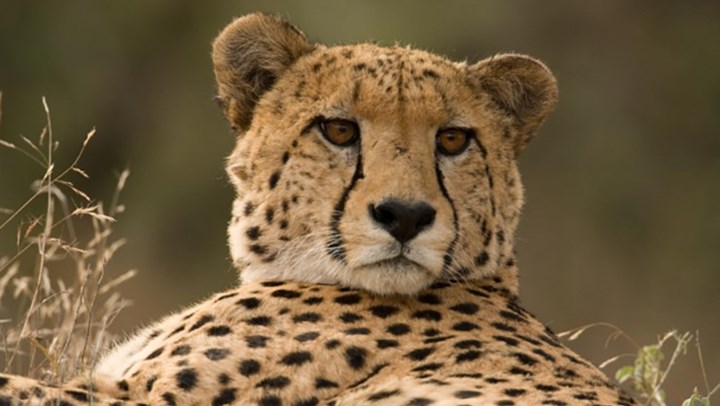
by Catherine Semcer - Wednesday, January 25, 2017

During its tenure, the Obama administration took an unprecedented interest in African wildlife—mostly to the detriment of the latter. The past eight years saw the continued weaponization of the Endangered Species Act (ESA) to promote an animal-welfare extremist agenda that undermined the ability of African people to sustainably use biodiversity and pursue conservation efforts to enhance both their economies and healthy wildlife populations. The poaching of elephants and lions continues to increase and threaten these species’ survival, despite the presence of ESA-based bans on the U.S. importation of these hunting trophies into the United States. As recently reported in USA Today, cheetah populations across Africa are crashing. The big cats are moving toward extinction—despite the species being regulated under the ESA since it became law in 1973.
The ESA is the United States’ legal mechanism for implementing the Convention on International Trade in Endangered Species (CITES), a treaty that helps to manage commerce in biodiversity and promote the conservation of fish, wildlife and plant species. The law allows for the use of both cooperative conservation and heavy-handed regulation to encourage the recovery of wildlife facing extinction. The Obama administration’s reliance on the latter with regard to African wildlife, through aforementioned trade bans and other policies, has only undermined hunting and the continent’s safari industry, both crucial to conserving the habitat on which cheetahs and other wide-ranging species rely. If Africa’s wildlife is to be conserved, this approach must change. Policies must incorporate the value that Africa’s hunting economy provides to species at risk.
According to research published last year by the National Academy of Sciences, cheetahs have lost 91 percent of their historic habitat due to expanding agriculture and other human encroachment. While the situation for cheetahs across Africa is arguably dire, one place where they continue to thrive is Namibia, which, according to the most recent estimates from the International Union for Conservation of Nature (IUCN), holds roughly 30 percent of Africa’s remaining cats.
This success is largely due to a holistic system that has incorporated hunting to create economic incentives to conserve cheetahs and their habitat and to manage the number of cheetahs killed to defend livestock. Each year since 1982, Namibia’s communal conservancies and professional outfitters have been permitted to offer clients the opportunity to hunt cheetahs, a regime under which the Namibian Association of Community Based Natural Resource Management Support Organizations (NACSO) has reported a six-fold increase in cheetah sightings.
Despite this successful track record, the U.S. Fish and Wildlife Service (USFWS) continues to use the ESA to prohibit the importation of cheetah trophies from Namibia and elsewhere into the United States. This discourages U.S. hunters from playing a part in cheetah conservation and discourages other countries from implementing cheetah hunting programs. Thankfully, hunters from Canada, Latin America, Russia and much of Europe still may import cheetah trophies from Namibia and contribute to the recovery of one of Africa’s most majestic species. Otherwise, Namibia’s cheetahs likely would be suffering the same population declines seen elsewhere in Africa.
Hunter-conservationists hope the Trump administration will not make the mistakes that have become Obama’s legacy so that cheetahs, elephants, lions and all of Africa’s wildlife will thrive. The priority should be to improve the USFWS’ implementation of the ESA so that cooperative approaches grounded in sustainable use are emphasized. The USFWS should conduct and publish a thorough review of all ESA listings impacting African big game. Next it should identify both the positive and negative effects the law is having on conservation efforts within range nations. The charter of the Wildlife and Hunting Heritage Conservation Council, a federal advisory council to the Secretaries of the Interior and Agriculture, also should be expanded. It should provide recommendations on proposed ESA listings of game species and foster communication with foreign counterparts, as appropriate, so that listing decisions account for indigenous conservation programs rather than undermine their effectiveness.
Finally, the agency should improve and expand its permitting process so hunters can more easily participate in Africa’s sustainable hunting programs. In turn, more of their dollars will be returned to conservation efforts. By taking these simple actions, the Trump administration can set the stage for a new and desperately needed era in international cooperation in efforts to conserve Africa’s wildlife.
■ ■ ■
About the Author
Catherine E. Semcer is Chief Operations Officer of Humanitarian Operations Protecting Elephants (H.O.P.E.), a U.S.-based non-profit organization that provides training, advisory assistance and procurement services to African anti-poaching programs by leveraging the skill sets of U.S. veterans and the capacities of commercial businesses. A longtime hunter, Semcer is also a member of the International Union for Conservation of Nature’s (ICUN) Sustainable Use Livelihoods Specialist Group (SULi), a global-expert network that promotes both conservation and livelihoods through enhancing equitable and sustainable use of wild species and their associated ecosystems. You can support H.O.P.E.’s efforts to secure a future for Africa’s wildlife by visiting www.saveivory.org.
*Please note that the opinions expressed in this article are strictly her own.
E-mail your comments/questions about this site to:
[email protected]
Proudly supported by The NRA Foundation and Friends of NRA fundraising.
